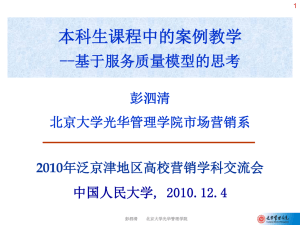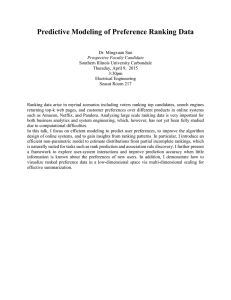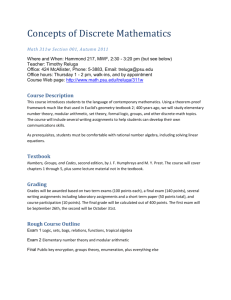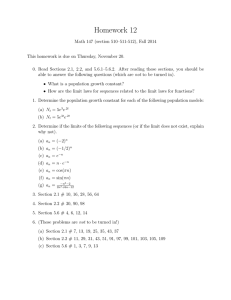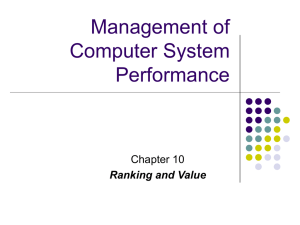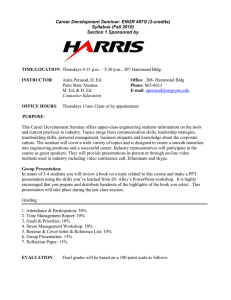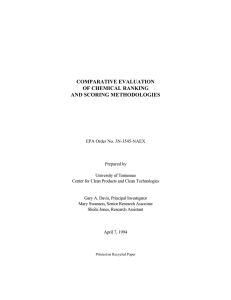Centennial Honors College Western Illinois University Undergraduate Research Day 2012
advertisement
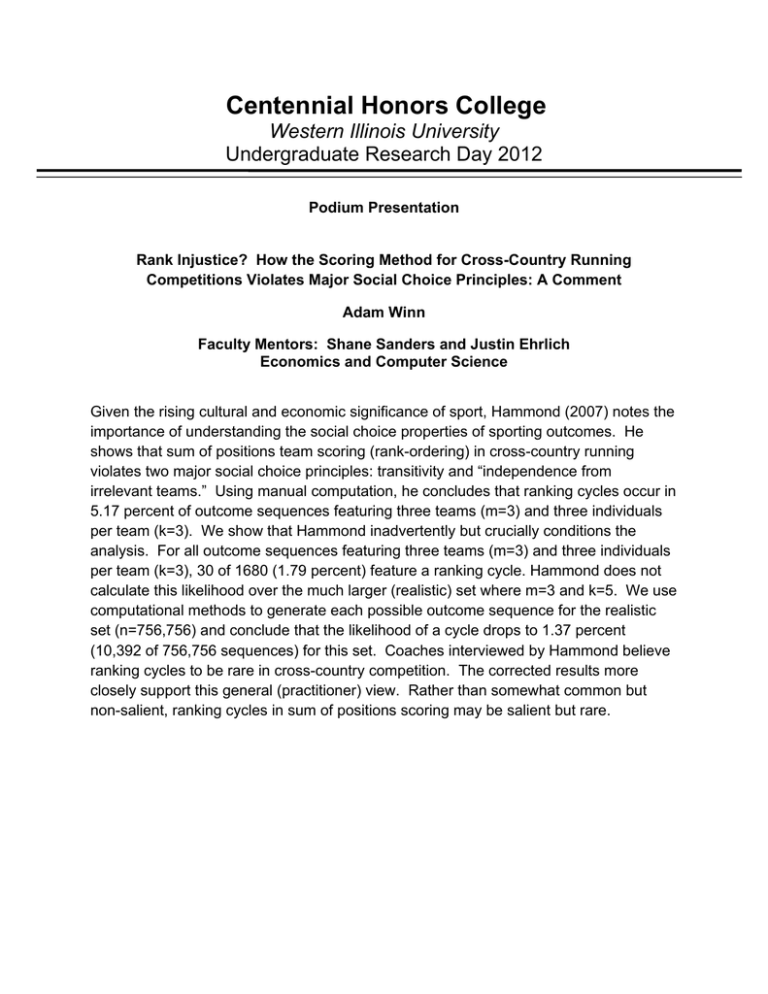
Centennial Honors College Western Illinois University Undergraduate Research Day 2012 Podium Presentation Rank Injustice? How the Scoring Method for Cross-Country Running Competitions Violates Major Social Choice Principles: A Comment Adam Winn Faculty Mentors: Shane Sanders and Justin Ehrlich Economics and Computer Science Given the rising cultural and economic significance of sport, Hammond (2007) notes the importance of understanding the social choice properties of sporting outcomes. He shows that sum of positions team scoring (rank-ordering) in cross-country running violates two major social choice principles: transitivity and “independence from irrelevant teams.” Using manual computation, he concludes that ranking cycles occur in 5.17 percent of outcome sequences featuring three teams (m=3) and three individuals per team (k=3). We show that Hammond inadvertently but crucially conditions the analysis. For all outcome sequences featuring three teams (m=3) and three individuals per team (k=3), 30 of 1680 (1.79 percent) feature a ranking cycle. Hammond does not calculate this likelihood over the much larger (realistic) set where m=3 and k=5. We use computational methods to generate each possible outcome sequence for the realistic set (n=756,756) and conclude that the likelihood of a cycle drops to 1.37 percent (10,392 of 756,756 sequences) for this set. Coaches interviewed by Hammond believe ranking cycles to be rare in cross-country competition. The corrected results more closely support this general (practitioner) view. Rather than somewhat common but non-salient, ranking cycles in sum of positions scoring may be salient but rare.
